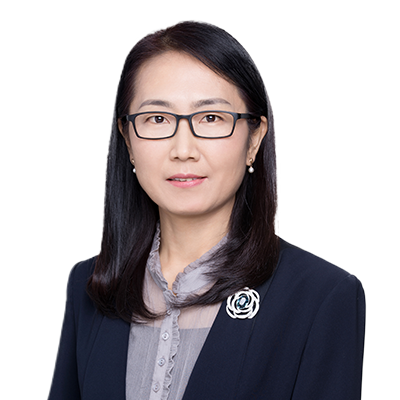On 12 May, the Price Monitoring Bureau of the National Development and Reform Commission (NDRC) released for public comment a consultation draft of the Guidelines on general conditions and procedures for the exemption of monopoly agreements. The consultation period ends on 1 June 2016. While the draft was prepared by the NDRC, the guidelines are expected to be adopted by the Antimonopoly Commission when they reach their final form, as they are of broad application and will be relevant to enforcement by both the NDRC and the State Administration for Industry and Commerce (SAIC).
The guidelines set out a procedural framework for the application of Article 15 of the Antimonopoly Law. Under Article 15, conduct that would otherwise breach the prohibition on cartels and restrictive agreements in Articles 13 and 14 of the law can benefit from an exclusion if specific conditions are met. While Article 15 lists seven circumstances that constitute grounds for exclusion, such as improving efficiency and product quality or improving technology or research and development, it (and the law generally speaking) does not provide for a procedure allowing parties to seek a formal decision or guidance from administrative enforcement authorities or the courts as to whether the conditions of Article 15 are satisfied in any particular case. The statutory text clearly puts the burden on parties claiming the benefit of these causes for exclusion to prove that all conditions set forth in Article 15 are met.
The exemptions framework proposed by the NDRC sets out two procedures that would enable parties to obtain legal comfort in certain circumstances, but retains a strong emphasis on self-assessment. The exemptions framework leaves open the possibility for future sector- or category-specific exemption rules, which appears in line with the release of the draft Antimonopoly guidelines in relation to the automotive industry in March of this year.
Exemption applications
The first procedure proposed under the consultation draft is a formal application for exemption. Under this procedure, an undertaking or industry association can apply for an exemption in two limited circumstances; either before an agreement has been concluded or after the beginning of an investigation by an administrative authority (i.e. the NDRC or the SAIC). Where however an agreement has already been concluded, no application for exemption will be accepted. The draft guidelines expressly state that, in this case, the undertakings or industry association will be deemed to have considered the implications of Article 15.
Substantively, an exemption application will be analysed in three ways. Firstly, it will be considered in terms of how the agreement fulfils the conditions for exclusion set out under Article 15. Secondly, the authority will conduct a market analysis by reference to market shares; the degree of control held by the parties over the sales market or the procurement market; the financial and technical capabilities of the parties; barriers to entry; and potential competitors in the market. Thirdly, the parties must prove that the agreement can generate benefits which can be shared by consumers through for example product or service innovation, an increase in quality, or lower prices. Applicants will be informed within seven days if materials submitted are incomplete.
Exemption applications can be made to enforcement authorities under the State Council (i.e. the central bureaus of the SAIC and the NDRC in Beijing) or to provincial bureaus, although it is not clear whether separate applications may be made to different enforcement authorities at either national or provincial levels. If the enforcement authority proposes to confirm that grounds for exclusion are available, it will normally seek third-party views and, where social and public interests may be affected, the authority would publish their proposed exemption opinion and relevant annexes for 20 working days. A final decision would also be published within 20 working days after a decision is made, unless the decision concerns state secrets. Parties will also be given the opportunity at both stages of publication to apply for confidential treatment of any business secrets.
An exemption decision can subsequently be withdrawn if, for example, there is a substantial change in the circumstances on which the original exemption was granted, and also may be deemed void with possible penalties if an applicant deliberately conceals important facts or otherwise provides false information. Compliance with an exemption granted will be monitored by the relevant enforcement authorities.
Exemption consultations
In contrast with formal applications, a narrower category of cases will be accepted for exemption consultation. Agreements that qualify for review under this second procedure proposed under the draft guidelines concern those which may have competitive effects across different countries or regions (including on the Chinese market) and where the relevant undertaking or industry association proposes to apply for an exemption in other countries; or where an extensive and significant application is made by a national industry association on behalf of an industry. Additionally, the proposed agreement must generally be sufficiently certain, and a fresh case, not having been decided under other operative laws or court decisions.
An application for consultation may only be made once with an authority that has enforcement jurisdiction over the matter and an acceptance decision will be made in seven days. If accepted, the draft guidelines emphasise that the review of the case will be solely based on materials submitted by the applicant, though the relevant authority may obtain information from public sources if necessary. A consultative opinion will be issued within 60 working days and will inform the applicant of any competition issues concerned and suggestions for rectification. For obvious cases, the opinion may also include an indication as to whether that case would meet the exemption criteria under Article 15. The guidelines also clarify that the issue of a consultative opinion neither indicates the enforcement prospects of the authority, nor bar the authority from later conducting an antimonopoly investigation.



